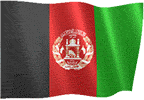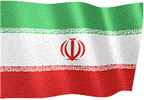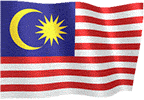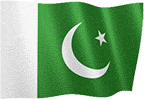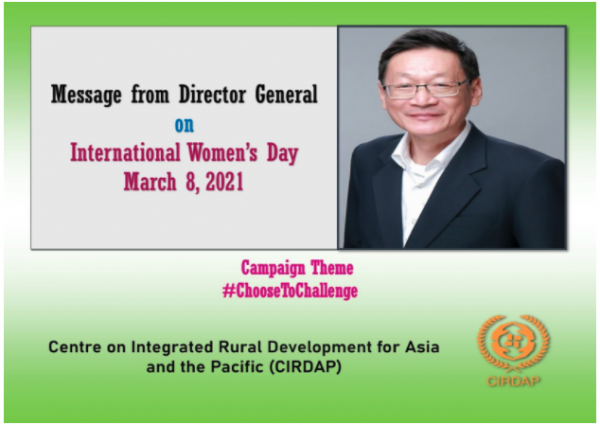
Centre on Integrated Rural Development for Asia and the Pacific (CIRDAP) celebrates the International Women’s Day, today. This year’s theme is “Women in leadership: Achieving an equal future in a COVID-19 world,” and campaign theme is #ChooseToChallenge. This day celebrates the tremendous efforts by women and girls around the world in shaping a more equal future and recovery from the COVID-19 pandemic and highlights the gaps that remain. A challenged world is an alert world and from challenge comes change. So let’s all choose to challenge.
The United Nations began celebrating International Women’s Day in 1975. In 1977, the United Nations General Assembly invited member states to proclaim March 8 as the UN Day for women’s rights and world peace.
This year “International Women’s Day” comes at a very difficult time for the world and for gender equality due to pandemic situation. However, this is the time to fight for actions and to salute women and young people for their relentless efforts for gender equality and human rights. The effective and active participation and leadership of women drives progress for everyone. Yet, according to the UN Secretary-General’s recent report, women are still underrepresented in public life and decision-making. Women are Heads of State or Government in 22 countries, and only 24.9 per cent of national parliamentarians are women. At the current rate of progress, gender equality among Heads of Government will take another 130 years.
CIRDAP’s focus is on rural women’s leadership and empowerment in all spheres of lives to good health, gender equality, human rights, quality education, and equal participation in decision making process.The COVID-19 pandemic is estimated to push an additional 88 million to 115 million people into extreme poverty in 2020, with the total rising to 150 million by this year. Women remain concentrated in the lowest paid jobs and in extremely vulnerable forms of employment across the world. Women are nearly twice as likely than men to lose their jobs during the COVID-19 crisis. Indeed, the pandemic will dramatically increase the poverty rate for women and widen the gap between men and women who live in poverty.
The 2030 Agenda for Sustainable Development says to leave no one behind, in this regards, governments should make policies and efforts to create more opportunities of education and employment for women. Also, family and society should change their attitude or perspective towards women and should actively create a favourable environment for her progress and success.
Dr. Cherdsak Virapat
Director General, CIRDAP

